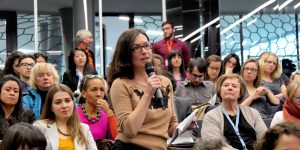
Several professors, researchers and students work on SDG 4 at the Graduate Institute. The activities range from academic courses on education, to events and research projects on skills development policies and Information Communication Technology, and academic and policy-oriented publications. The Network for International Policies and Cooperation in Education and Training (NORRAG) serves as a hub of activity on education at the Graduate Institute.


An Expert Look at Public-Private Partnerships in Education

NORRAG Launches KIX Europe Asia Pacific Hub

Research and Teaching in International Education and Development: New Paradigms and Perspectives in the Post-2015 Era

Accelerating achievement of the sustainable development goals

Improving the Protection of Persons with Disabilities during Armed Conflict

The Global Targeting of Education and Skill: Policy History and Comparative Perspectives

Walking the SDGs in Europe, from theory to action

Leaving No One Behind: Establishing Inclusive Social Protection Systems in the Face of the COVID-19 Crisis

The Human Capital Index: Good Intentions, Flawed Methodology to Measure Learning

“Capital Markets of the World”: looking at the birth and history of modern finance through stock exchange quotations, 1850-…

How the COVID Pandemic Is Shifting International Knowledge Production from Global to Local
Discover more SDGs
View moreGoal 4 aims to ensure inclusive and equitable quality education for all which, according to the UN Sustainable Development Knowledge Platform, will require “increasing efforts, especially in sub-Saharan Africa and Southern Asia and for vulnerable populations, including persons with disabilities, indigenous people, refugee children and poor children in rural areas”. The promotion of lifelong learning opportunities for all is another aspect of the goal. Read more about Goal 4